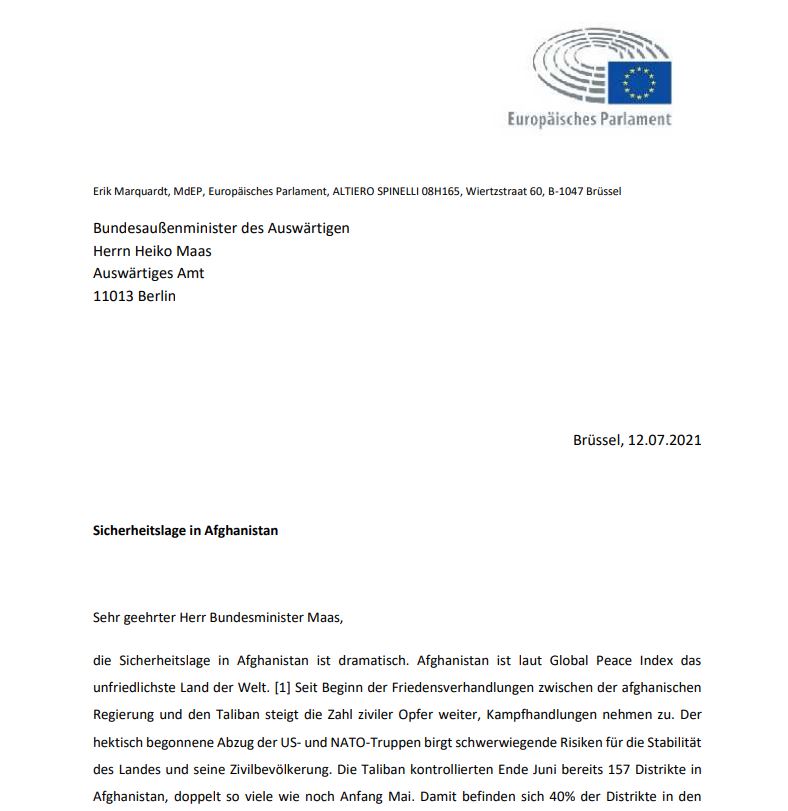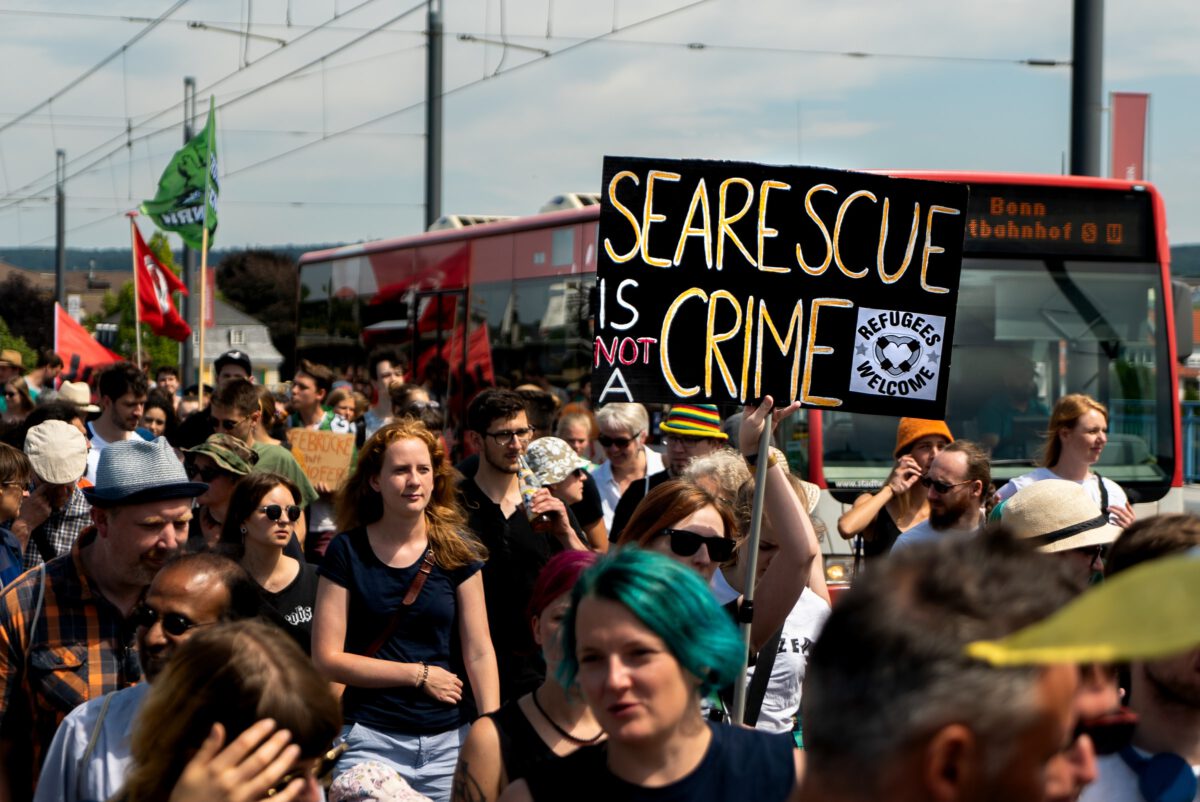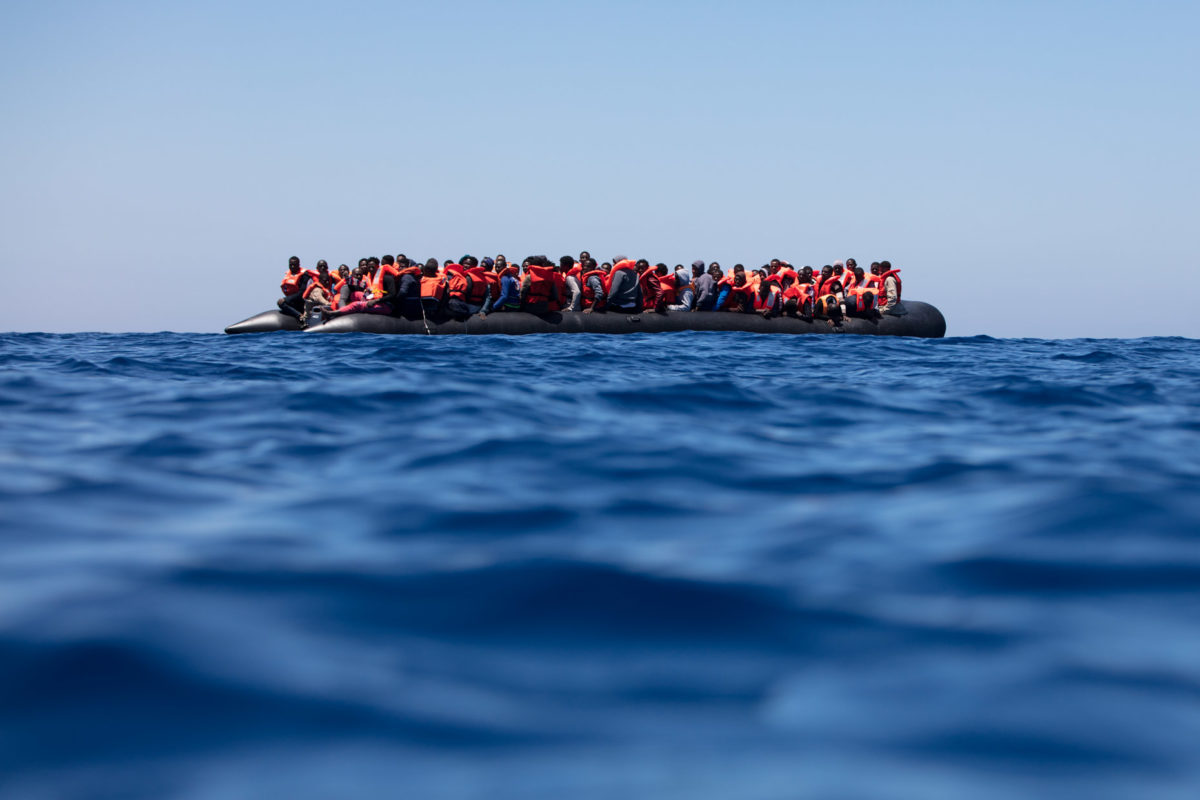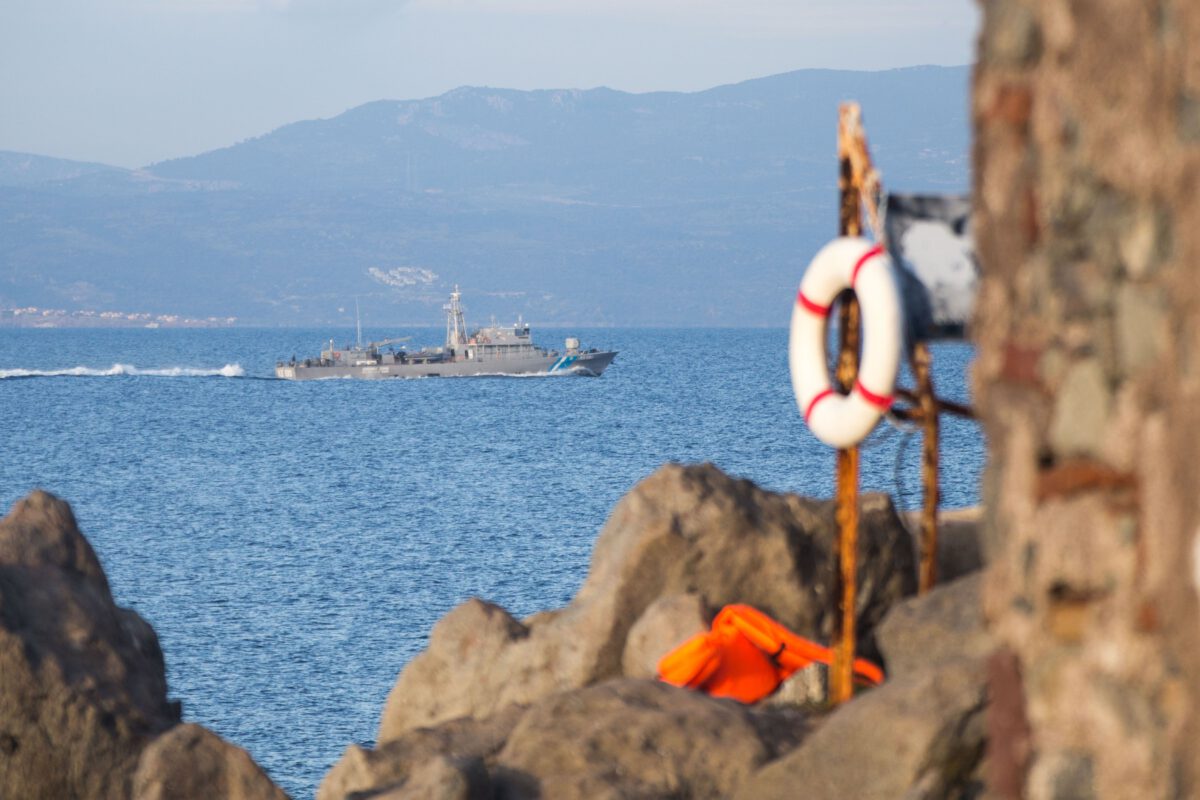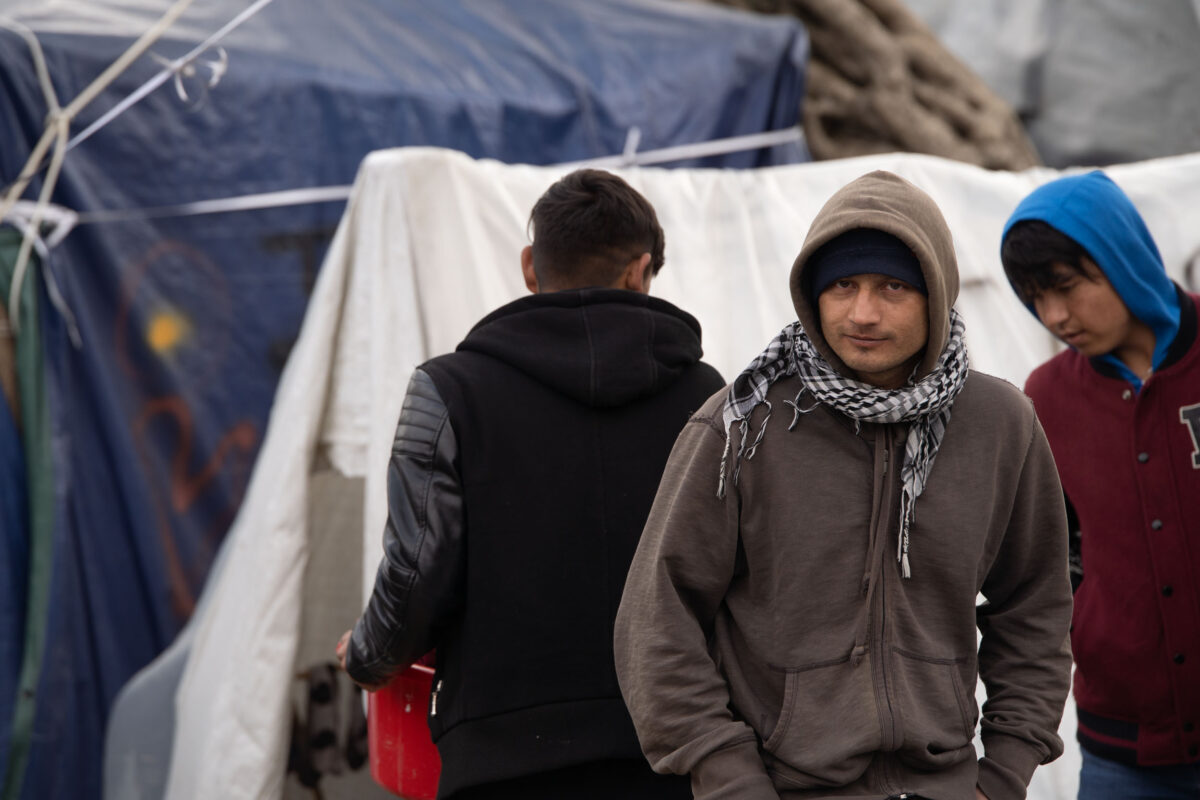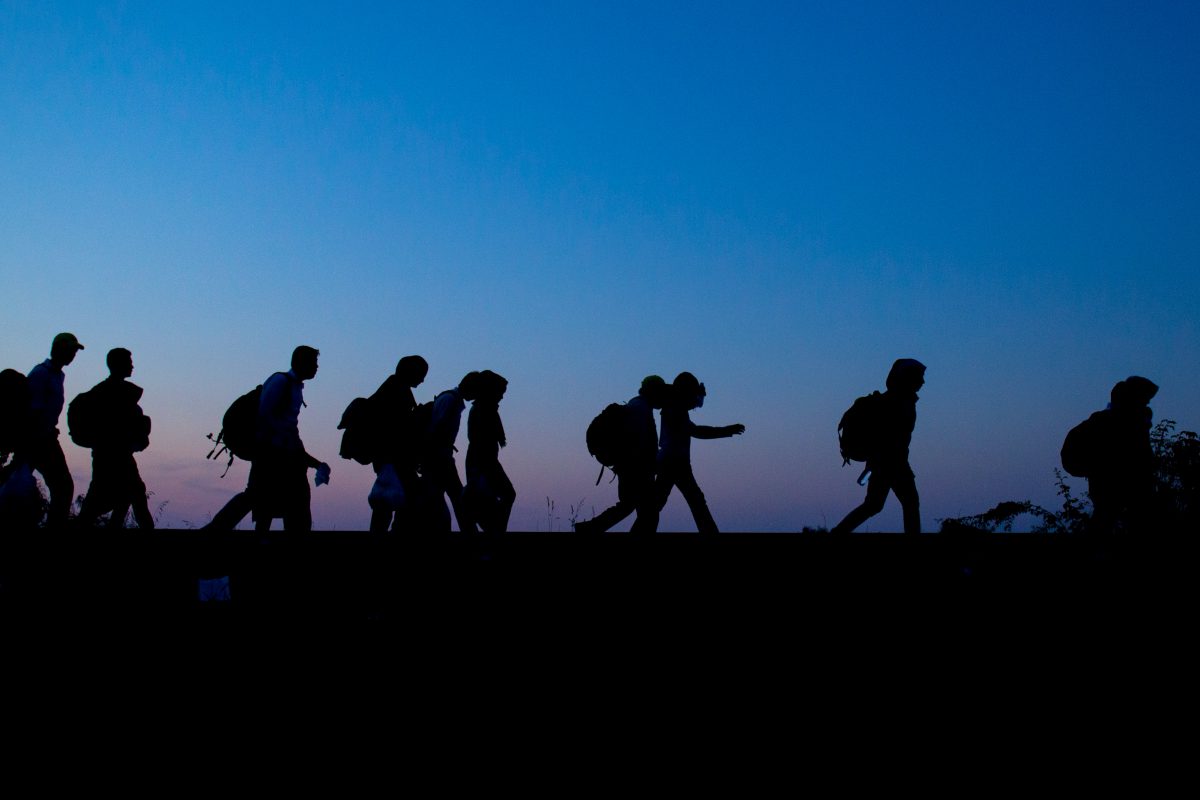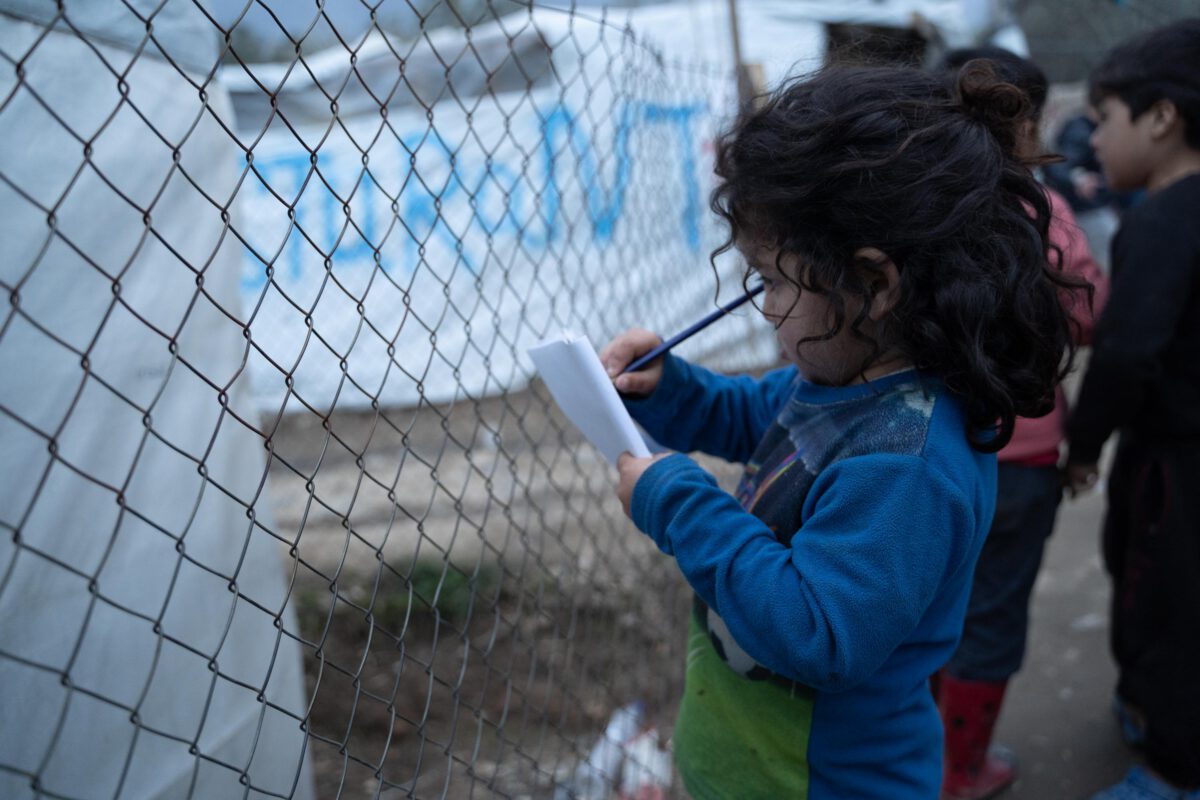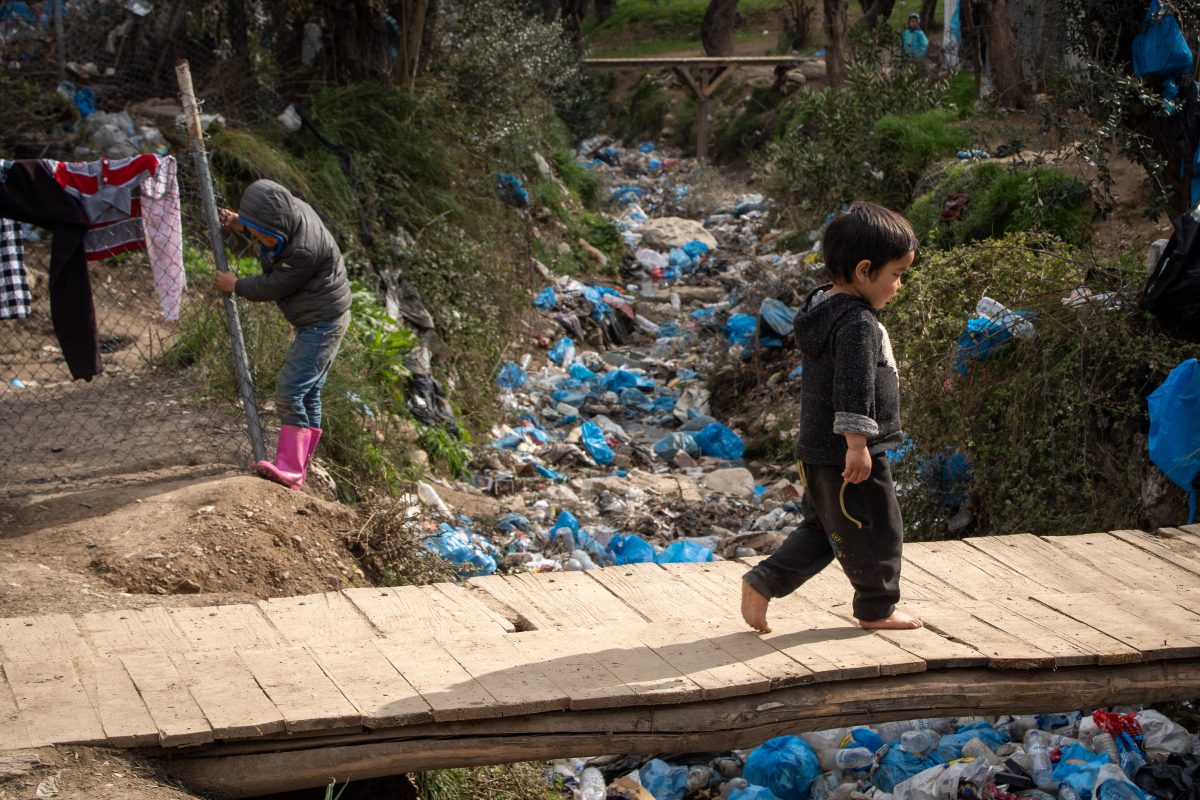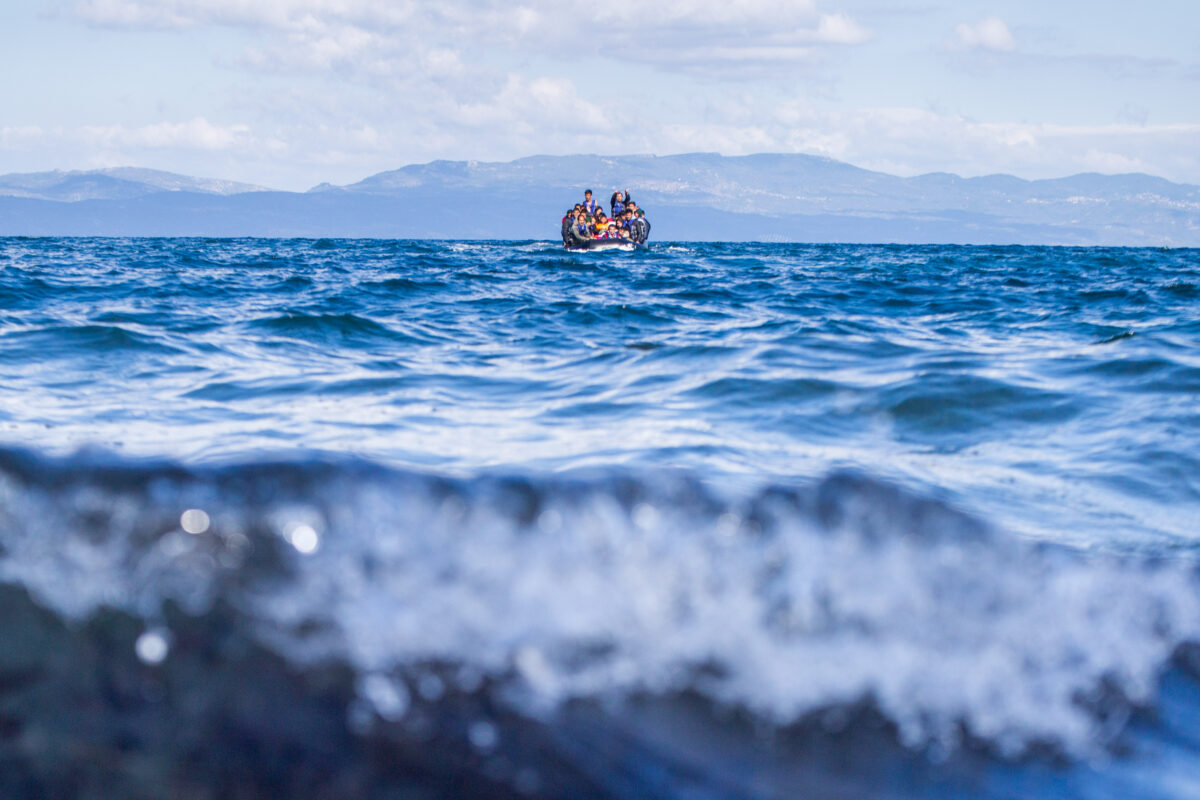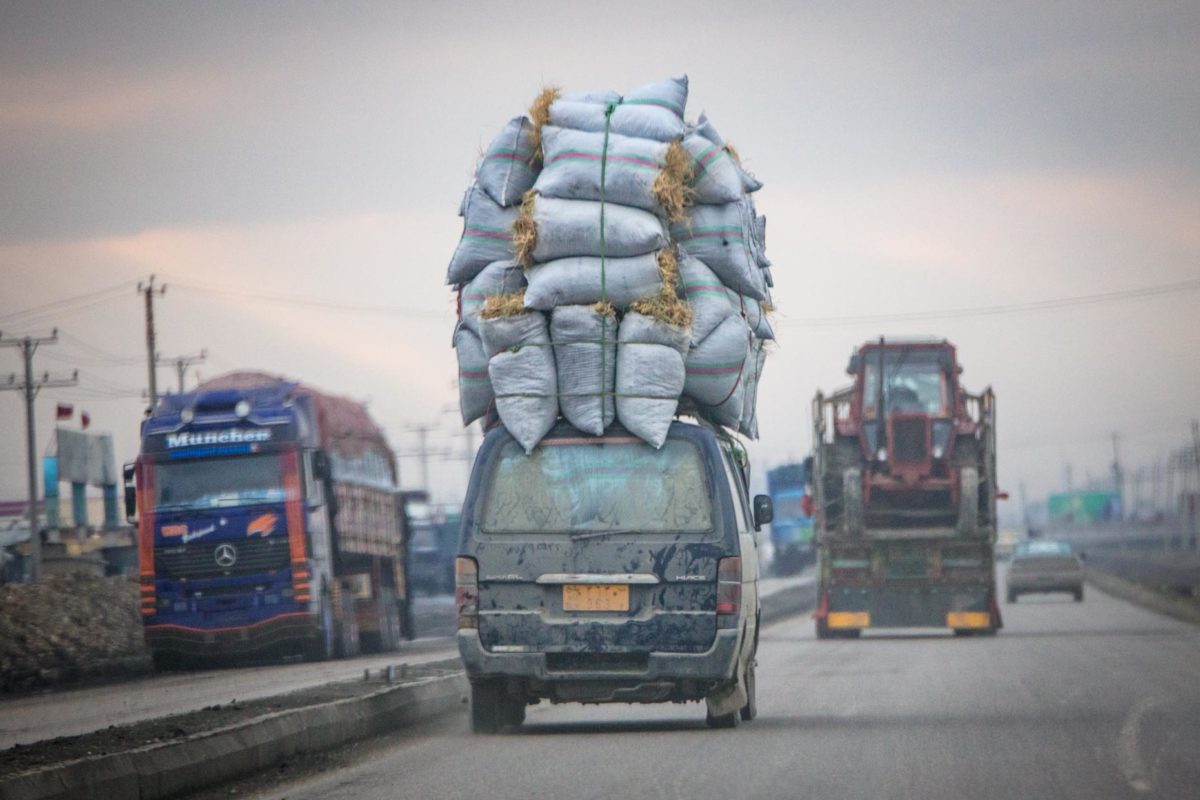Over the past two decades, we have unfortunately come little closer to a humane and progressive asylum policy. Below you will find an overview of the Amsterdam Treaty via the Treaty of Lisbon to the current Commission proposal for a Common European Asylum System (GEAS), on which the Commission, Council and Parliament are currently working.
The Amsterdam Treaty is signed by the Heads of State and Government of the EU Member States in 1997 and enters into force two years later. It sets the course for a common European asylum policy: parts of asylum policy are declared to be a common policy area of the European Union by being incorporated into the supranational first pillar of the Community have been integrated. The aim is to approximate asylum policy and asylum law in the Member States. The Amsterdam Treaty also brings into force the first Dublin agreements is in force. This stipulates that only one EU member state is responsible for each asylum procedure.
Tampere Special Cups 1999
The Tampere Special Summit is held in Finland in October 1999. The European Council adopts a programme for cooperation in the field of justice and home affairs for the next five years. Within this framework, the guidelines of a Common European Asylum System (CEAS) is elaborated. Common criteria for granting refugee status on the basis of the Geneva Refugee Commission will be adopted. Agreements with countries of origin of those seeking protection and further measures are to enable more extensive control of migration movements.
The Dublin Agreement is revised in 2003. It is stipulated that, in principle, the country of first entry must conduct the asylum procedure and thus also examine the applications. This poses challenges for European border states such as Greece and Italy, while European states without an external EU border can largely escape responsibility under the agreement. Furthermore, with Dublin II the EURODAC database introduced. This will be used to collect and compare fingerprints of people seeking protection. Border controls are also being extended. Dublin II had the goal of harmonizing European asylum policy, but also aggravated the situation for protection seekers in Europe.
The Hague Programme 2004
In 2004, at a special summit, the governments of the EU decide to continue the Hague Programme. It is based on the Tampere programme, of which it is the successor. The aim of the programme is to further restrict immigration. This is to be achieved with the help of agreements with countries of origin and transit. One focus will be on the deportation of people with rejected applications. At the same time, measures for legal migration and for the integration of third-country nationals are to be created.
In addition, the European Border and Coast Guard Agency shall Frontex is launched. A common visa information system (VIS) collects and shares information on asylum applications and biometric data at EU level.2005 EU heads of state and government draw up the Global approach to migrationwhich aims to cooperate with countries of origin and transit outside the EU to prevent irregular migration.
Asylum Procedures Directive 2006 and Lisbon Treaty 2009
One year later, the Council adopted Asylum Procedures Directive in force. It lays down principles and minimum standards of asylum procedures. The aim is to harmonise access to asylum procedures in the EU between the member states. The Asylum Procedures Directive defines who is recognised as a refugee or as a person in need of subsidiary protection. The exact decisions are here to read. In practice, however, harmonisation between the Member States is failing, which is already the enormous difference in recognition rates in the Member States.
The Treaty of Lisbon enters into force in 2009 and strengthens the Powers of the European Parliamentwhich is now de facto a co-legislator with the Council of the European Union (Council of Ministers). Nevertheless, Parliament still has no automatic right of initiative. At the same time, the rights of the Member States are structurally preserved, which have a right of veto in the European Council. They are also still free to decide how many people they grant entry and work permits to. The Treaty will key areas of a common EU migration policy defined: The establishment of conditions for legal entry and residence and the rights of people from third countries, as well as the fight against trafficking in human beings and "irregular" migration.
Stockholm Programme 2010
With the Stockholm Programme from 2010-2014, which replaces the Hague Programme, will be followed by the development of Frontex and the enhanced cooperation of Europol and Eurojust with the Border Agency. The Entry-Exit System (EES) will be created to register non-EU citizens residing in the EU. This is a further step towards the creation of "smarter" borders. In addition, further readmission agreements are being concluded with countries of origin. At the same time, labour migration is being viewed more favourably as part of the solution to the skills shortage in Europe.
In 2011, the Commission shall adopt the Global Approach to Migration and Mobility (GAMM)which updates the approach written in 2005. Compared to the GAMM, the framework conditions for legal migration are improved and the right to asylum is strengthened. Labour migration in particular is to be facilitated. At the same time, border controls will be tightened and more restrictive measures introduced. More emphasis will be placed on readmission agreements with countries of origin. In addition, central competences in the granting of visas and asylum remain with the Member States. The GAMM represents a strategy with an impact on European foreign policy.
Dublin III from 2014
Dublin III comes into force in 2014. In addition to the nuclear family, uncles, aunts and grandparents are now also considered family members and the right to family reunification is extended to people with subsidiary protection status. Furthermore, mandatory interviews with applicants are introduced. Appeals against rejection decisions can from now on postpone deportations and refoulements to another member state. An advance warning and crisis management system will also be adopted. The Dublin procedure is extended to people applying for subsidiary protection and no longer only concerns people applying for refugee status. People who pose an "acute risk of absconding" can now be detained. Dublin III provides for accelerated procedures for people in detention.
In 2013, the EU will begin, with the approval of the Council, to EU Border Assistance Mission cooperate with Libyan institutions, ostensibly to combat human and arms smuggling and further prevent migration to the EU. The goal is to send people back to their countries of origin. To this end, the EU is equipping the Libyan coast guard, training them and thus creating a paramilitary unit. These are partly Warlordswho often smuggled people themselves.
Beginning and end of Mare Nostrum and state-organised rescue at sea
In the same year, the EU calls Having regard to the support of the Parliament and the Council the monitoring system EUROSUR to monitor Europe's external borders using satellite data. National authorities must now coordinate their actions with each other and with Frontex. coordinate. In addition, the Italian Coast Guard launches Operation Mare Nostrumwhich in just one year 130,000 people lives in the Mediterranean Sea.
However, EU heads of government refuse to support the operation with resettlements. Therefore, a European coordinated rescue at sea from. Mare Nostrum will end in October 2014 and will be replaced by the Frontex operation. Triton replaced. Instead of rescuing people in distress at sea, the focus is on isolation. As a result, fewer people have been rescued in the Mediterranean.
Khartoum Process 2014 and the cooperation with brutal dictatorships
The so-called Khartoum Process of 2014 is causing a stir, as the EU states here with Military dictators from Eritrea, Sudan and South Sudan are working together. Ethiopia, Somalia, Djibouti, Kenya, Libya, Egypt and Tunisia are also involved in the process. With the justification of wanting to prevent the causes of flight, the EU Commission is working here with repressive dictators from whom people are fleeing and who in some cases have very high recognition rates in EU states.
Following disasters in the Mediterranean, a special summit of the Commission and EU Heads of State and Government will be held in 2015. 10-point plan was adopted. Funds for Frontex sea rescue will be increased to respond to the increasing number of refugees in distress at sea. Further measures against smuggling will be adopted and Frontex will be given further competences. Also the Application area of the agency will be increased. People are to be deported more quickly with the help of Frontex. Cooperation between EU security authorities will also be stepped up.
European Migration Agenda 2015 and establishment of „hotspots“
The European Agenda on Migration will be presented by the Commission in 2015. In order to facilitate legal migration to the EU, the "EU Blue Card" for highly qualified persons will be revised in the following years. More detailed information on the EU Blue Card and further legal migration opportunities to the EU I have summarized on my blog. The cooperation with countries of origin will also be strengthened again.
The surveillance of Europe's external borders is being pushed forward; trafficking boats are to be destroyed. Here, too, the aim is to facilitate legal migration and prevent irregular immigration. To stop migration more quickly and to combat them. In this way, the Agenda is part of the EU's Global Approach to Migration. The Externalization is increasingly being expanded, thus shifting the EU's border policy to third countries.
In addition, the establishment of "hotspots", i.e. closed centres where protection seekers are registered and security checks take place, is decided. In the same year, intra-European Walls and Fencesas in Hungary, Slovenia and Austriaand many people have been prevented from travelling further. Many countries are closing their borders and using more offensive violence against those seeking protection. Refugees on the Balkan route are being guarded with barbed wire, dog patrols, Pepper spray, tear gas and water cannons prevented from continuing their journey.
Operation Sophia
Since 2016, the European Union Naval Force Mediterranean (EUNAVOR MED) as part of the Operation Sophia the so-called Libyan coast guard. The self-declared goal is to combat smuggling and human trafficking. This goes back to a decision by the European Council. Also armed Soldiers from Germany are involved. The rescue of people in distress at sea, which is obligatory anyway, is also envisaged.
In the same year, the Commission changes its strategy on migration and on dealing with third countries: In the framework of the Partnership Frameworks the focus is placed on deportation. If third countries fail to cooperate in taking back migrants, the Commission threatens them with consequences, for example in terms of trade and development policy. Thus, crucial EU assistance is linked to cooperation in migration policy.
EU-Turkey Deal 2016
On 20 March 2016, the EU-Turkey deal in force. Since then, protection seekers have been systematically detained on the islands and deported back to Turkey. Syrian protection seekers who reach the Greek islands "irregularly" are to be brought back to Turkey. For each of these people, another Syrian person is to be resettled from Turkey to the EU. Even if people from Syria are resettled in the EU, the statement ignores refugees from other countries, such as Iran or Afghanistan, who often suffer hardship in Turkey.
There are numerous pushbacks to Turkey, from where many people face deportation to Syria. You can read more about the agreement in a Conversation with Gerald Knaus, Maximilian Pichl and me. In September of the same year, without the involvement of parliament, an agreement is reached with Afghanistan on the repatriation of refugees in order to carry out large-scale deportations to the country, which has been in disarray for decades. More on the JWF Agreementyou'll find here.
Malta Declaration 2017 and cooperation with Libyan militias
The Declaration by Malta was signed by the European heads of government on 3 February 2017. As a result, EU funds will be used to establish and support the Libyan coast guard, define a Libyan SAR zone and set up a coordination centre in Libya. This means that the Italian Maritime Rescue Coordination Centre is no longer responsible for coordinating SAR activities in international waters off the Libyan coast. Instead, this task now lies with the Libyan Coast Guard. This leads, among other things, to people being sent back to the country of civil war (so-called pullbacks) instead of being brought to a safe port.
Thus, civilian sea rescue ships are also ordered to take rescued people back to Libya, where they are threatened with torture, imprisonment, forced labour and murder. By no means can a port in Libya be described as safe for those seeking protection. Here the EU is making itself partly responsible for the inhumane treatment of people. SOS-MEDITERRANEAN explains: "With the Malta Declaration, the European Union has laid the foundations for a massive breach of international law, financed with European taxpayers' money."
New migration and asylum pact
Work is currently underway on a new Migration and asylum pact worked: In September 2020, the Commission will propose a draft to allow Member States to assist deportations instead of taking in protection seekers: In 2019, before the pact proposal was published, the previous Parliament agreed with the Council on a reform of Frontex's mandate. The so-called Regulation on the European Border and Coast Guard Agency II broadly expands Frontex's mandate: from 1700 Border Officers:in 2019, the agency is expected to increase to 10,000 border agents by 2027. Border procedures, i.e. Asylum procedures under detention conditions at the border, should become the norm.
We Greens have a Alternative proposal which is based on genuine and binding solidarity. We are in favour of open asylum procedures that take into account the preferences of those seeking protection and the readiness of local communities to receive them. We will work to ensure that human rights are not further restricted and that access to fair asylum procedures is guaranteed. We must constantly ask ourselves where we want to go, what goals we are pursuing with European migration policy, how we want to appear externally and internally. In doing so, we must never forget that the future of Europe can only be based on human dignity and equality.
Other sources:
Dr. P. Bendel, M. Haase: Third phase: Migration policy as a Community task (since 1999). In bpb, 29.1.2008. Available online at https://www.bpb.de/gesellschaft/migration/dossier-migration-ALT/56531/seit-1999
J. Grosser: Supranationalisation from Amsterdam to Lisbon (1997-2007). In: Treffpunkt Europa, 13.06.2020. Available online at Supranationalisation from Amsterdam to Lisbon (1997-2007) – treffpunkteuropa.de
M. Haase, J.C. Jugl: EU asylum and refugee policy. In bpb, 27.11.2007. Available online at https://www.bpb.de/gesellschaft/migration/dossier-migration-ALT/56551/asyl-fluechtlingspolitik?p=all
English-language literature:
Bialasiewicz, Luiza (2012): Off-shoring and Out-sourcing the Borders of EUrope. Libya and EU Border Work in the Mediterranean. In: Geopolitics 17 (4), pp. 843-866.
Crépeau, Francois (2015): Report of the Special Rapporteur on the human rights of migrants. UN Doc. A/HRC/29/36. Report presented at the Human Rights Council, 29th Session. Geneva.
Gaibazzi, Paolo; Dünnwald, Stephan; Bellagamba, Alice (eds.) (2017): EurAfrican Borders and Migration Management. Political Cultures, Contested Spaces, and Ordinary Lives. New York, s.l.: Palgrave Macmillan US (Palgrave Series in African Borderlands Studies).
Papagianni, Georgia (2013): Forging an External EU Migration Policy. From Externalisation of Border Management to a Comprehensive Policy? In: European Journal of Migration and Law 15 (3), pp. 283-299.
Wierich, Andrea (2011): Solving Problems Where They Are Made? The European Neighbour-hood Policy and Its Effects on the Context of Other Migration-Related Policies of the European Union. In: Perspectives on European Politics and Society 12 (3), pp. 225-241.
